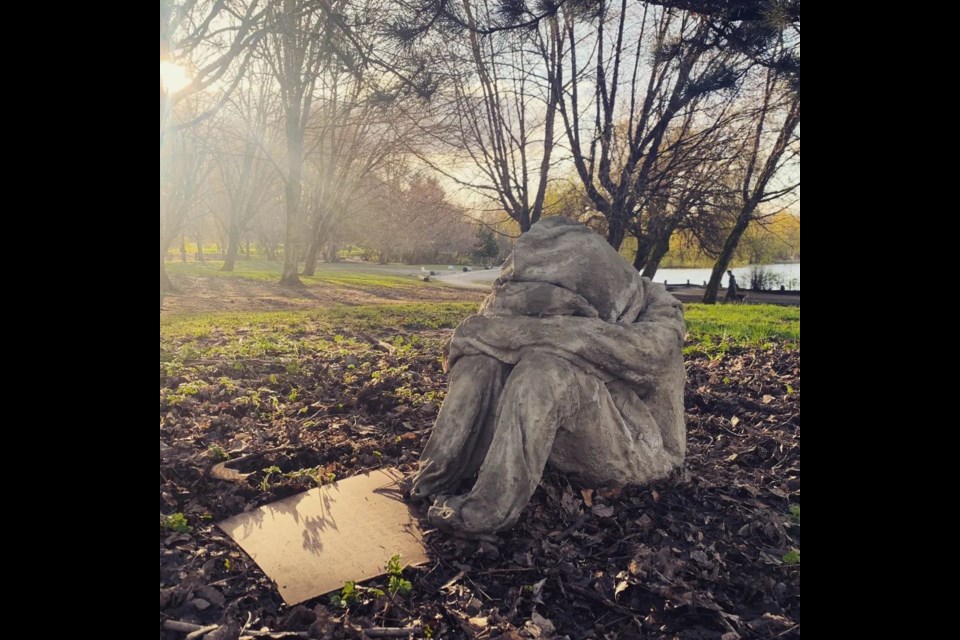is clear: "It's really not about me."
Street art is used to express the collective joy, pride, and grief of communities, many of whom have been oppressed, marginalized, and erased in one way or another by society at large. It serves a purpose beyond brightening your day or adding visual interest to an increasingly gentrified neighbourhood, as it often communicates social, political and environmental issues, generates relationships within community groups and makes spaces safer for those most affected by the subject of the art.
Since August of last year, Lupo has been making cement and wire figurines ranging from thumb- to life-size and installing them in public spaces around Â鶹´«Ã½Ó³»in honour of people he has known and lost.
"The work that I'm doing, those are made by me but the bigger picture is not unique to me," he tells Â鶹´«Ã½Ó³», "I want to make sure that I'm not taking credit."
The project, which has been dubbed by the community, began as a way for Lupo to process his own grief, but the artist is surprised by the public response.
"I didn't expect anyone to notice," he admits.
Lupo shares that in recent years he has lost many people to overdose, violence, and suicide. He explains the fentanyl and drug overdose epidemic is connected to all kinds of oppression and that "for a lot of us there's this fear" because people aren't just dying, they're being erased. Like leaving flowers on the roadside, Lupo is leaving art to make "our grief visible," he adds.
"Once I've made it and it's out there, it belongs to everyone else. This is our community, it belongs to the community as well."
He uses cement because he feels it is connected to the urban environment. "It reminded me of monuments," Lupo says. "We have monuments to a lot of bad people in this city."
The human figures are often hunched over their knees with their hands over their faces as if they're hiding or crying and people who have encountered the art pieces have been moved to leave their own mementos like flowers, bracelets, and letters to those they've lost.
Previous locations have included the Granville Street Bridge, the Law Courts, the Peace Flame, and near Science World. Each installation usually only lasts a day or two.
The first night Lupo set out with 60 of the small figures and by the time he was done placing them around 7 a.m., there was only one left. Since then he has put out another 60 small ones and eight to 10 life-sized pieces. Each time he is thinking of a specific person. "Sometimes they're places I'm concerned about the erasure," he says of where he chooses to leave the art, "or the place was important to that person."
Lupo has only been an artist for a year and a half; he also works with paint and shares portraits . The cement art is made ahead of time and then installed at night. The locations of the larger works need to be scoped out and planned ahead of time to make sure they are screwed in place if necessary. The most recent sculpture was placed on a log at Kits Beach last night.
If you see a piece of Lupo's art in public and chose to share a picture of it on social media, he asks that you tag it #belovedghosts to continue to ensure that these monuments to community members are not erased or forgotten.



